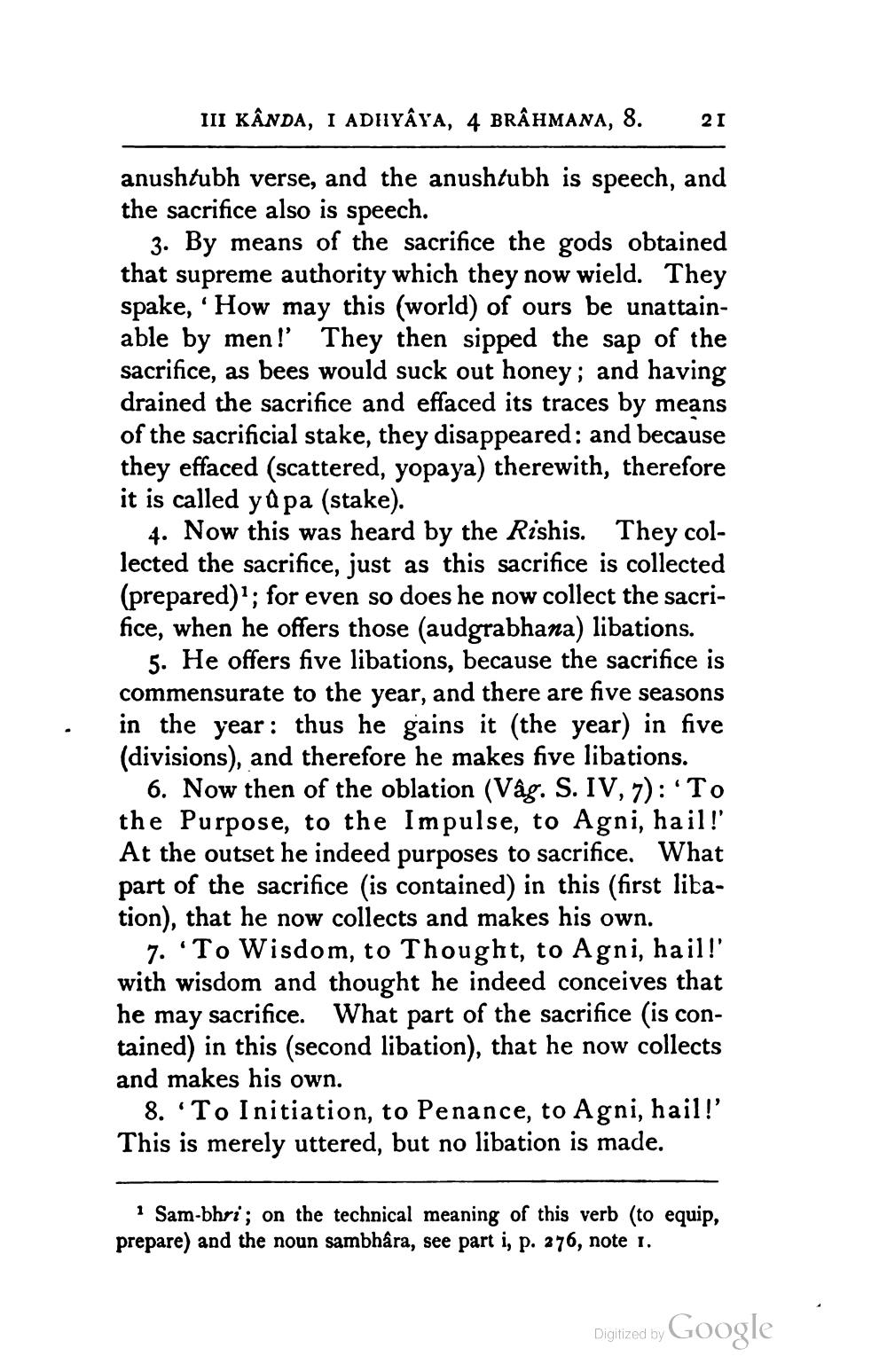________________
III KÂNDA, I ADHYAYA, 4 BRAHMANA, 8. 21
anushubh verse, and the anushubh is speech, and the sacrifice also is speech.
3. By means of the sacrifice the gods obtained that supreme authority which they now wield. They spake, 'How may this (world) of ours be unattainable by men!' They then sipped the sap of the sacrifice, as bees would suck out honey; and having drained the sacrifice and effaced its traces by means of the sacrificial stake, they disappeared: and because they effaced (scattered, yopaya) therewith, therefore it is called yupa (stake).
4. Now this was heard by the Rishis. They collected the sacrifice, just as this sacrifice is collected (prepared)1; for even so does he now collect the sacrifice, when he offers those (audgrabhana) libations.
5. He offers five libations, because the sacrifice is commensurate to the year, and there are five seasons in the year: thus he gains it (the year) in five (divisions), and therefore he makes five libations.
6. Now then of the oblation (Vâg. S. IV, 7): To the Purpose, to the Impulse, to Agni, hail!' At the outset he indeed purposes to sacrifice. What part of the sacrifice (is contained) in this (first libation), that he now collects and makes his own.
7. 'To Wisdom, to Thought, to Agni, hail!' with wisdom and thought he indeed conceives that he may sacrifice. What part of the sacrifice (is contained) in this (second libation), that he now collects and makes his own.
8. 'To Initiation, to Penance, to Agni, hail!' This is merely uttered, but no libation is made.
1 Sam-bhri; on the technical meaning of this verb (to equip, prepare) and the noun sambhâra, see part i, p. 276, note 1.
Digitized by
Google




